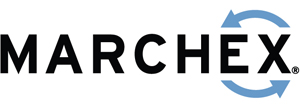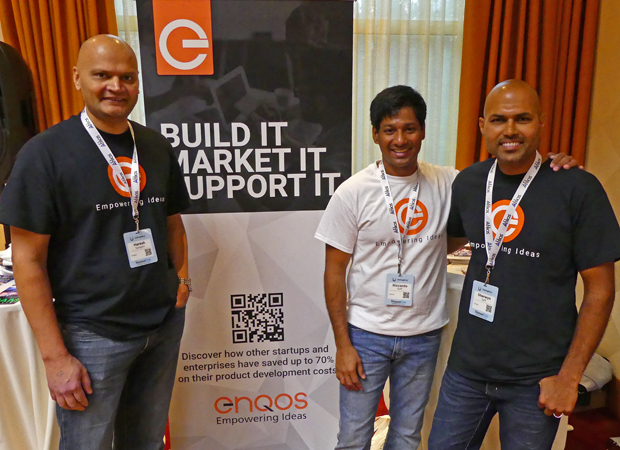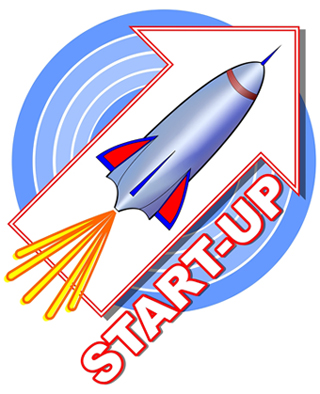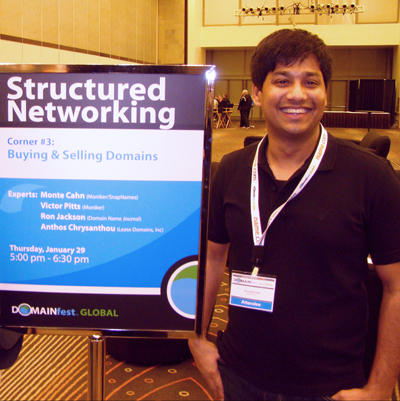|
smile on his face and a
positive attitude that spills
over to everyone around him.
But it occurred to me that I
had never asked him exactly
how he found his way into the
domain business after starting
out with ecommerce giant Amazon.
"I was responsible for
moving all Amazon inbound
inventory into their
distribution centers,"
Soff began. "I did that
for a year and then got an
opportunity to meet with a
family friend who was looking
to hire people for this fun
company that was investing
in internet domains and
doing some lead gen
(that company was Marchex)."
|

|
"I
met a few folks over coffee
and the very next day they
extended me an offer to work
as an analyst
generating reports for a small
team. It's only once I got
started that I really
discovered that I was
responsible and accountable
for managing a portfolio of |
|
domains. I used to run
audits on the inventory to
ensure the safety of names,
managed the yearly renewal
spend and always founds ways
to lower the spend by
negotiations with registrars.
I consolidated about
300,000 domains that were
spread across more than 20 or
so registrars to about 3 where
I was able to negotiate credit
terms and demand lower pricing
for the volume." |
"After
months of doing this and
understanding how this works,
I had a local news channel (KOMO
4 TV) inquire about SeattleNow.com
and PortlandNow.com and
I convinced them to buy them
for $450,000 out of
which we used $200,000
to drive traffic to these
sites. This was the start for
my journey into the domain
world. The day the transaction
completed, our CEO, Mr. Russell
Horowitz, told me to
stop analyzing and start
selling!," Soff
smiled. From there on, I sold
about $35 million in
domains managing one of the
prettiest portfolios on the
market. I was accountable to
sell about $10 million in
domains a year and I focused
on always increasing the
average sales price and
managed to consistently sell
names in the north of
$25,000 range.
My complete record of every
transaction was published by
Marchex showing the volume and
size of deals and I think this
may still be available in the
archives at DNJournal (Editor's
note: It is - in this
.pdf file). The
value of quality domains and
the ability to secure
significant returns made me
very interested in this
field."
|
Marchex
would later (in 2015) sell its
domain portfolio to GoDaddy,
but by then Soff had already
decided to join his brother,
who launched Enqos in 2010, to
scale a lead |

|
|
generation
business using digital
marketing strategies. "My
brother Sherwyn
was with Microsoft at the
time and was working in ad
tech, engineering some of the
foundational systems in paid
search, real time federated ad
exchanges for display
advertising and ad SDK's for
rich media ads," Soff
said. "I was working at
Marchex but this opportunity
was very interesting because
it provided visibility into
how all this ad tech actually
helped make a difference to
small businesses. We created a
co-located virtual team
that was able to handle hundreds
of thousands of campaigns
and are still actively at work
on that." |
"Both
of us have always been very entrepreneurially
driven, so once Enqos was up
and running smoothly we
embarked on another
start up journey that used
technology to solve problems
with cross border commerce.
Sherwyn is an engineer so he
started coding up the product,
but the problem space was vast
and we needed more top notch
engineers to build this. We
realized quickly that hiring
engineers to work on a start
up is hard, we tried offering
equity to developers to work
on the product part time, but
it did not scale
well."
The
Soff brothers also tried
outsourcing and freelancers
but neither produced the
results they wanted. "So
we decided to build our first
co-located virtual engineering
team in house where we hand
picked talent that met our
bar, who were dedicated to our
product and who were vested in
the success of our
product," Soff said.
"Soon enough a couple
of former colleagues and
friends who ventured into
building their own startups
were facing the exact same
issues and needed help,
so we helped them using the
same model. Slowly word
spread and by the time we knew
it we were helping half a
dozen startups build products.
The next thing you know, they
needed help with marketing, so
we leveraged our marketing
team. They needed customer
support, so we built a shared
support team. We now call this
product startup labs,
as I like to say “it was
built by startups for startups."

(Left
to right): Enqos team
leaders Haresh Sangani,
COO Riccardo Soff and
CEO Sherwyn Soff at their NamesCon 2017
Network Lane booth.
"Our
mission is to enable
entrepreneurs and product
leaders to do more by reducing
friction with respect to tech,
talent, time and cost. For
engineering we focus on
providing two solutions, one
is to help build top notch
virtual teams (co-located or
satellite) that is also
affordable and the second is
to offer CTO as a
service for a more fully
managed solution. Some of the
core areas we focus on are
mobile and web development,
machine learning, Big Data,
and UI/UX. We support a wide
array of technology stacks
like Node JS, PHP, .Net, React
JS, Angular JS, Hadoop, Spark,
Elastic Search, Python, Scala,
Java, MySQL, NoSql DB’s, iOS,
Android, ionic and a lot
more."
"For
marketing, our primary
focus is on digital and we do
it all, from paid search,
social media, content
marketing, seo, mobile and
display ads, retargeting,
analytics and more. For support,
we have a high quality
customer experience team that
can field calls, answer
questions, manage forums, deal
with support tickets etc. We
strive to make customer
support easy, on-demand and
on-brand," Soff said.
The
startup field has become red
hot and has spilled over
into the domain space with
a Domain Startup Conference
in Los Angeles last
year as well as THE Domain
Conference having a Startup
Saturday before their
regular show in Florida
began last September. We
asked Soff about this trend
toward closer integration of
the domain name and startup
space.
|

Image
from Bigstock |
"Naming
a startup is hard."
Soff noted. "Entrepreneurs
spend days or months
coming up with the right name
that represents their product
or service. You have to pick a
name that is memorable, easy
to spell, available (the .com
that is available), clear of
any Trademark, sounds catchy
and is not confusingly similar
to another brand."
"I
have been in this position
several times and I have
personally helped and
recommended branding for
several startups. Over the
years I have experienced both
selling to a startup as well
as buying as a startup. I have
seen startups spend anywhere
from 5K to 50K on a
domain name. They realize the
potential of a having a great
name and hence assign a
generous budget to acquire the
perfect branding. This is
where domain investors with a
wide variety of names tend to
benefit, a focused effort to
make available quality names
to entrepreneurs has proven to
be lucrative," Soff said.
|
"The
latest trend I have observed
with domainers is their
interest in building out
products and framing a
scalable business with a
strong domain name backing, a
couple of good examples are Soothe.com
and Translate.com.
Startup founders are looking
at innovative ways to find brandable
names, names like zookie.com
and mambo.com, that did
not have high value or much
interest but have started
trading well into 5 figures.
This in my opinion is directly
proportional to the rapid
growth of startups."
When
asked about some of the most
exciting things currently
going on in the startup space
Soff said, "We like to
partner with companies that
are working on innovative
ideas, be it startups or
enterprises. There is a reason
we do that, it helps us
maintain a culture at Enqos
that is always on the bleeding
edge of technology, the
vibe within the company is
always high energy and
positive, and the learning
across teams is incredible. We
work with companies in various
verticals such as - adtech,
global commerce, martech, food
tech, communication and e
commerce."
"One
of the most exciting things
happening across all verticals
is that machine learning
and AI is becoming an
integral part of every product
strategy. Product leaders are
becoming more cognizant about
using data generated by their
users and augmenting this data
for more BI. The software and
tools are becoming more and
more sophisticated in this
space. All the startups we
work with are awesome!,"
Soff concluded with his
trademark smile. |














